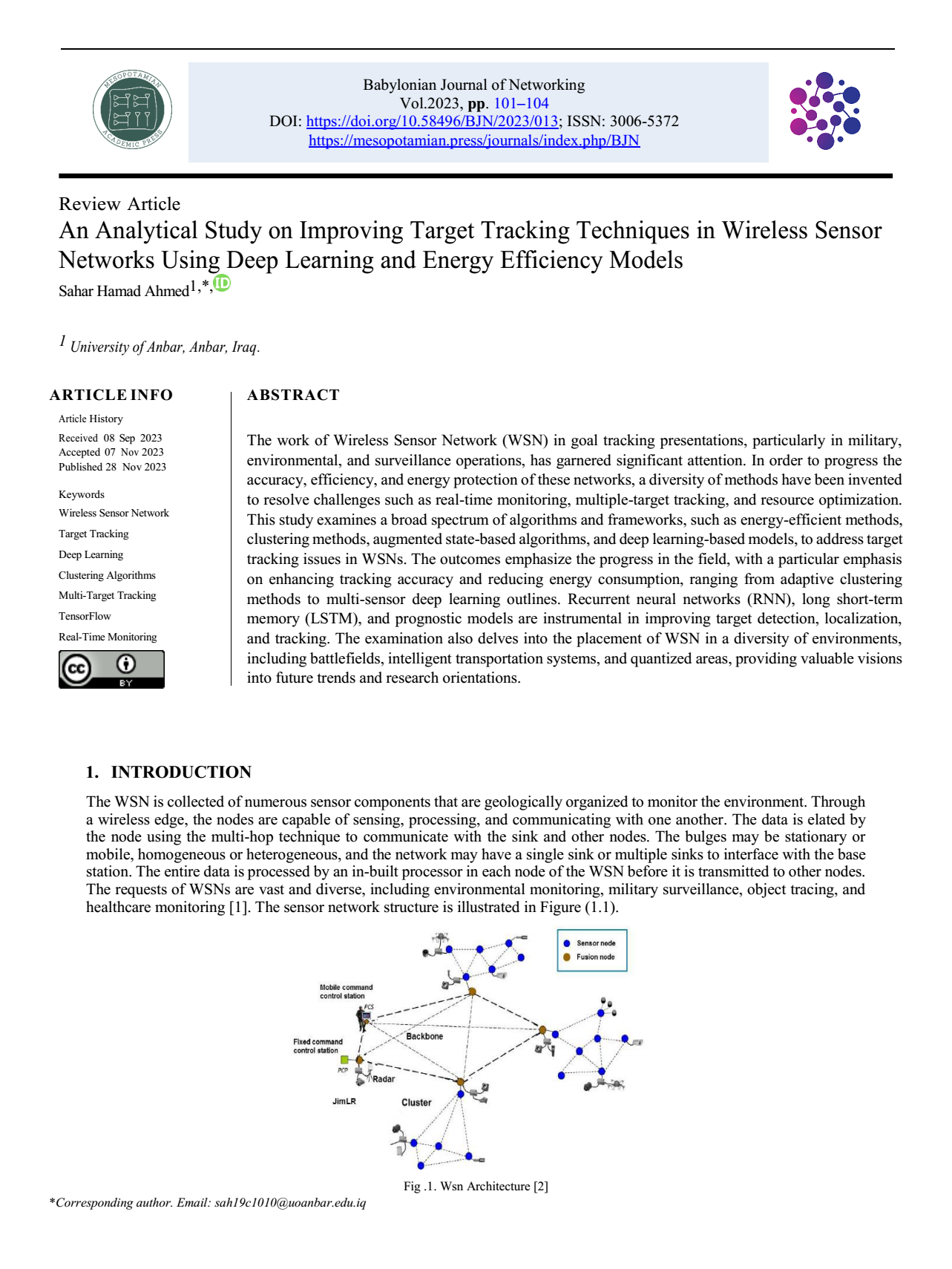An Analytical Study on Improving Target Tracking Techniques in Wireless Sensor Networks Using Deep Learning and Energy Efficiency Models
Main Article Content
Abstract
The work of Wireless Sensor Network (WSN) in goal tracking presentations, particularly in military, environmental, and surveillance operations, has garnered significant attention. In order to progress the accuracy, efficiency, and energy protection of these networks, a diversity of methods have been invented to resolve challenges such as real-time monitoring, multiple-target tracking, and resource optimization. This study examines a broad spectrum of algorithms and frameworks, such as energy-efficient methods, clustering methods, augmented state-based algorithms, and deep learning-based models, to address target tracking issues in WSNs. The outcomes emphasize the progress in the field, with a particular emphasis on enhancing tracking accuracy and reducing energy consumption, ranging from adaptive clustering methods to multi-sensor deep learning outlines. Recurrent neural networks (RNN), long short-term memory (LSTM), and prognostic models are instrumental in improving target detection, localization, and tracking. The examination also delves into the placement of WSN in a diversity of environments, including battlefields, intelligent transportation systems, and quantized areas, providing valuable visions into future trends and research orientations.
Article Details
Issue
Section

This work is licensed under a Creative Commons Attribution 4.0 International License.
